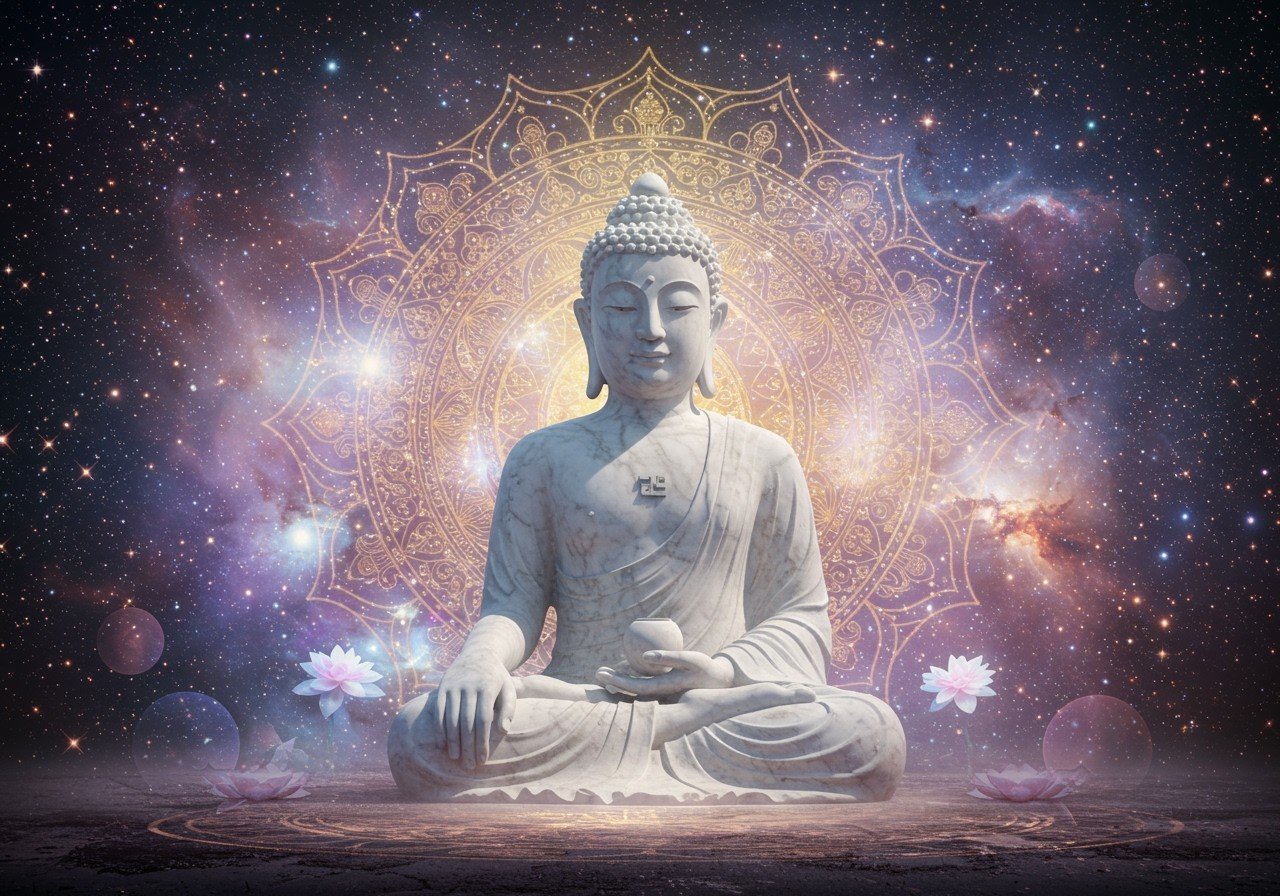Buddhism and the Concept of Divinity: A Comprehensive Guide

Buddhism, a venerable spiritual tradition, offers a unique perspective on the concept of divinity, distinct from many other major religions. This article explores what Buddhism teaches about God, the reasons behind its non-theistic stance, and how this perspective shapes Buddhist practices. Gaining clarity on these concepts will allow you to appreciate the distinct spiritual path Buddhism illuminates.
What Buddhism Says About God
Buddhism doesn’t adhere to the belief in a singular, omnipotent creator God in the way Abrahamic religions do. Instead, it emphasizes personal spiritual growth and the pursuit of enlightenment. The Buddha is revered as a teacher and guide who showed the path to liberation, not as a deity to be worshipped.
Buddhist cosmology acknowledges the existence of devas, often translated as “gods.” However, these beings are not eternal, all-powerful creators. Like humans, they are subject to the laws of karma and the cycle of rebirth (samsara). The principle of dependent origination, a cornerstone of Buddhist philosophy, highlights the interconnectedness of all things, negating the need for a creator god. Buddhist meditation aims to cultivate wisdom and insight through direct experience rather than through communion with a divine being.
The Concept of “God” in Buddhism
The term “god” in a Buddhist context refers to beings residing in higher realms of existence within samsara, not to a supreme, omnipotent creator. Buddhist cosmology describes six realms of existence, one of which is the deva realm. These devas possess greater powers and enjoy longer lifespans than humans, but they are still bound by the cycle of birth and death. Devas are not worshipped as ultimate deities, but they may be objects of respect or reverence. They can serve as guides or protectors on the spiritual path, but they are not central to the practice of Buddhism. They often symbolize various aspects of human experience, spiritual challenges, and potential for growth.
Why Buddhism Doesn’t Believe in God
Buddhism’s non-theistic stance is rooted in its philosophical approach to understanding existence. The Buddha’s teachings emphasize the Four Noble Truths, which offer a framework for understanding and addressing suffering without relying on a divine being. These truths focus on the nature of suffering, its origin, its cessation, and the path to its cessation.
Buddhism stresses self-reliance and personal responsibility in overcoming suffering. The concept of anatta (no-self) challenges the notion of a permanent, unchanging soul or divine essence. Through meditation and mindfulness, Buddhists cultivate a deep understanding of reality and the nature of self, reducing the perceived need for external divine intervention.
The Role of Rituals and Practices in Buddhism
While Buddhism doesn’t center on a god figure, it encompasses a rich tapestry of rituals and practices that support spiritual development. These practices aim to cultivate wisdom, compassion, and ethical conduct:
- Meditation: A core practice in Buddhism, meditation develops mindfulness, concentration, and insight into the nature of reality. It helps practitioners understand the workings of their own minds and cultivate inner peace.
- Prayer Flags: These colorful flags, often inscribed with mantras or prayers, are hung in high places to create a sacred atmosphere and spread positive energy. The wind carries the prayers across the land, symbolizing the spread of compassion and good wishes.
- Chanting Sutras: Reciting Buddhist scriptures, or sutras, can enhance mental clarity and focus. The rhythmic chanting helps to calm the mind and connect with the wisdom of the Buddha’s teachings.
- Prostrations: This physical act of bowing down symbolizes humility, respect, and surrender to the Three Jewels (Buddha, Dharma, and Sangha). It is a way of expressing gratitude and purifying the mind.
- Offerings: Making offerings of flowers, incense, or food cultivates generosity and non-attachment. It is a symbolic act of letting go of clinging and developing a spirit of giving.
- Pilgrimage: Visiting sacred sites associated with the Buddha’s life or other important figures in Buddhist history provides opportunities for reflection and spiritual growth. Pilgrimage can deepen one’s connection to the Buddhist tradition and inspire greater dedication to practice.
These rituals foster a sense of community and shared spiritual purpose. They provide a framework for individuals to connect more deeply with their practice and cultivate inner peace. Each ritual carries profound symbolic meaning, emphasizing respect, humility, and the ongoing journey of personal transformation.
How Poojn.in Supports Your Buddhist Practice
Poojn.in provides a wide selection of authentic Buddhist ritual items and supplies to support your spiritual journey. Our collection includes:
- Buddha Statues: Find exquisitely crafted Buddha statues in various mudras (hand gestures), made from pure copper, brass, and other materials. These statues serve as focal points for meditation and reminders of the Buddha’s teachings. Explore our Buddha statue collection.
- Prayer Beads (Mala): Choose from a variety of traditional malas made from different materials such as wood, seeds, or gemstones. Malas are used for counting repetitions of mantras during meditation, helping to maintain focus and concentration. Browse our selection of prayer beads.
- Meditation Cushions and Mats: Create a comfortable and supportive space for your meditation practice with our range of cushions and mats. These aids promote proper posture and help to minimize distractions during meditation. Learn more about meditation practices.
- Incense and Holders: Enhance your meditation space with the calming scents of traditional Buddhist incense. We offer a variety of incense sticks and holders to create a serene atmosphere for your practice. Discover our incense collection.
Poojn.in is committed to providing high-quality, authentic products for your Buddhist practice. We offer detailed product descriptions and specifications to assist you in making informed choices. Our online platform makes it convenient to access these essential items and have them delivered directly to your doorstep.
Conclusion
Understanding Buddhism’s perspective on divinity offers valuable insights into its profound teachings. Buddhism emphasizes personal spiritual development, self-reliance, and the pursuit of enlightenment through practices like meditation and mindfulness. While not centered on a creator god, Buddhism offers a path to wisdom, compassion, and inner peace through its rich tradition of rituals, ethical principles, and community support. By exploring these facets of Buddhism, you can cultivate a deeper understanding of yourself, the world around you, and the path to a more meaningful and fulfilling life.


